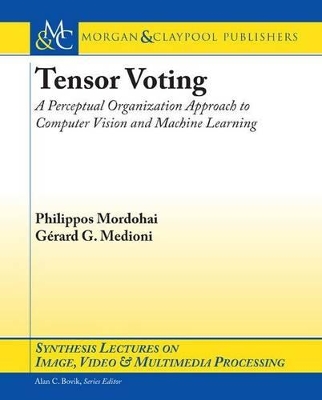This lecture presents research on a general framework for perceptual organization that was conducted mainly at the Institute for Robotics and Intelligent Systems of the University of Southern California. It is not written as a historical recount of the work, since the sequence of the presentation is not in chronological order. It aims at presenting an approach to a wide range of problems in computer vision and machine learning that is data-driven, local and requires a minimal number of assumptions. The tensor voting framework combines these properties and provides a unified perceptual organization methodology applicable in situations that may seem heterogeneous initially. We show how several problems can be posed as the organization of the inputs into salient perceptual structures, which are inferred via tensor voting. The work presented here extends the original tensor voting framework with the addition of boundary inference capabilities; a novel re-formulation of the framework applicable to high-dimensional spaces and the development of algorithms for computer vision and machine learning problems. We show complete analysis for some problems, while we briefly outline our approach for other applications and provide pointers to relevant sources.
- ISBN10 1598291017
- ISBN13 9781598291018
- Publish Date 1 December 2006 (first published 30 November 2006)
- Publish Status Temporarily Withdrawn
- Imprint Morgan & Claypool
- Format eBook
- Pages 136
- Language English
